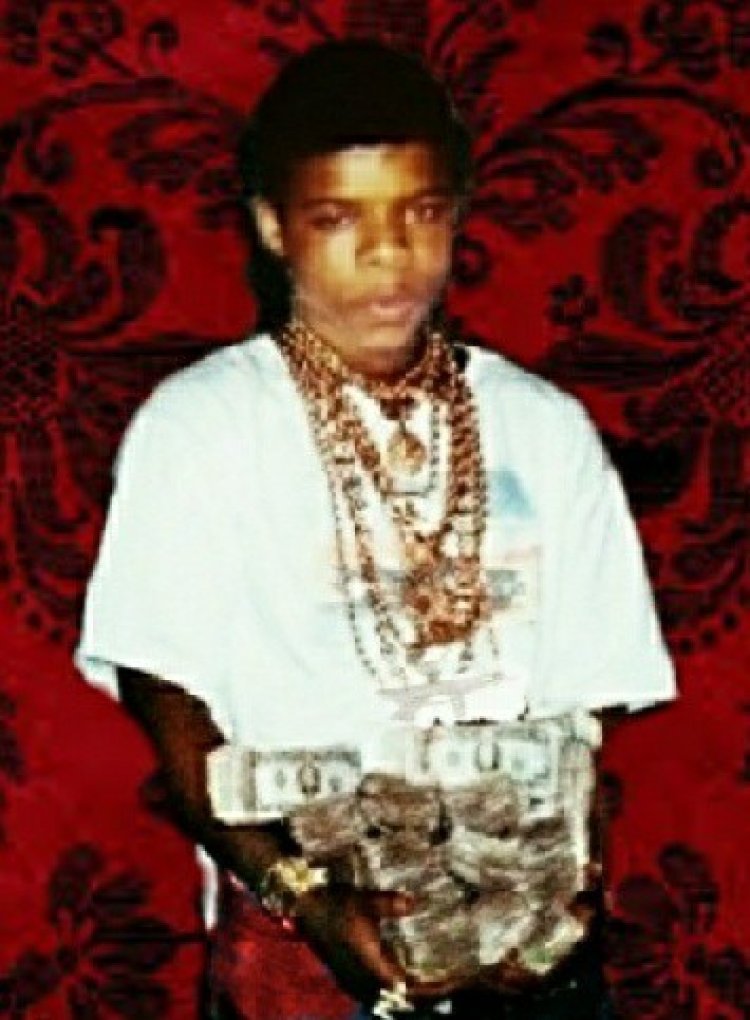The Blood Gang's Jesus Christ and The Wayward Righteous
God Created The Devil, Memphis Made Evis, While Birmingham Made Willie Redd... The Chosen
Damu Godda is arguably the most infamous and infamously popular and debated true-life bio pics in this millennium. Its story of social desire and a naive black kid's misunderstanding of love and loyalty in urban America is Shakespearean in its tragedy. Damu Godda is a docu drama of dynasty and depth, of real dimensions and def, of the mighty dollar and ultimate death. It is also a classic that belongs in a school of favorites with the movies "Scarface" and "The Godfather," if not in the very class.
I accepted this assignment after GChecktv's go-to editor Shelia promised to consider another piece of mines, and I gotta say I'm glad I did. After watching it twice, I am newly converted. You can't read up on the real-life character online or many places without bias one way or another, because his enemies are host. Even his former blood brothers jealously point out his negatives unprompted.
For that reason, in this review I analyze the themes and protagonist of Billy Jackson's 2020 masterpiece, Damu Godda, and nothing else. Also, there may be spoilers in my review. So if you haven't seen Damu Godda yet, what the fuck are you doing, man?—go watch it!
The single most important element in understanding the themes of this film, is our protagonist Willie Redd's motivations. Young Willie grew up in racially-challenged Alabama, he's lived his entire life under white conservative control, in a city more and more unequally capitaled the more liberalized the vote, which gave way, locally at least, to gutter community regimes of the Crips and the Gangsta Disciples.
We see early on that his family's struggle to exist and lack of personal autonomy in mainly Crip gang territory are hindering issues in the start of his youth. America is supposed to be the land of the free, where anyone can be what he or she wants to be. Willie knows this from learnings in elementary school, where he recites the Pledge of Allegiance every morning in class, and so he doesn't know how to believe anything else. He also wants this freedom to be, believe and simply breath.
Thus, when his uncle rips off a local kingpin and briefly rivals with drug posses before ultimately running afoul of the city gangs, young Willie is pushed on the side of the small yet tight-knit 62 Brims almost by default. Once there, however, the gifted and ambitious Nubian American juvenile with the pretty features and nerdy hobbies quickly climbs his way mafia style through the Bloods gang ranks.
His single-minded mission of protecting his targeted family gradually manifests into the singular goal of making the underworld his, which in turn gives us an unforgettable, sometimes informative, yet always entertaining epic of low-budget American documentary storytelling cinema.

Like Brian De Palma's 1983 classic, the Billy Jackson docu drama is sometimes loud and violent and in some places outrageous and over the top, yet again, it works because of its protagonist, an antihero who is different and dangerous and yet attractive and masterful enough in his childishly reckless motives that you must watch, until before long, as with Al Pacino in "Scarface" or "Devil's Advocate" you find yourself rooting for this young hellion, who is clearly an underdog that simply learns to bite, and doesn't fear the fight, be it with the Crips, the police, or even the Jamaicans.
Opening with the scene of his birth, and ending with the harrowing damnation of incarceration, Damu Godda gives us a guided tour through the world of an otherwise wonderful and wonky child, grabbed up by a gangsta land and forced to be a man before he could fully understand—an becomes something of an American nightmare. In glimmering signs of the great promise to come, his childhood fulfilment of writing an actual gang manual or guidebook, called "The Blood Bible," worked so well that few dispute that the then-13-year-old hellraiser singlehandedly shaped bloods nation more than any one since its founding.

Yet one cannot just glide over the familial plot that plods along so thrillingly with echoes of Francis Ford Coppola's "The Godfather" film, with its own solemns of blood and loyalty and family business, its easily embarrassing trials and painful tribulations, from drug abuse by Willie's mother to his grandmother turning a blindeye to the kids' organized stealing to survive a harsh winter; its quietly proud traditions, as with everyone meeting up at the family house when discussing family business.

Brutal honesty, self-awareness, sentimental struggles of monumental proportions, artfully painted with urban romanticism punctuated by bursts of violence, makes Damu Godda: The Legend of Willie Redd the sort of film that pisses off critics and pulls in crowds. Don't believe me, just ask the Independent Film Society and the people of France where Damu Godda has been viewed over ten million times. According to a moto video graph of top-selling modern black urban American film classics, Damu Godda out sold or out streamed every gangster brand movie title in its genre between 2019 and 2021. The translation is a little screwy but they get the picture no less, and love it, apparently.
Masterpiece theater without the network budget, Damn Godda is an absolute raw classic.

 Admin
Admin 









